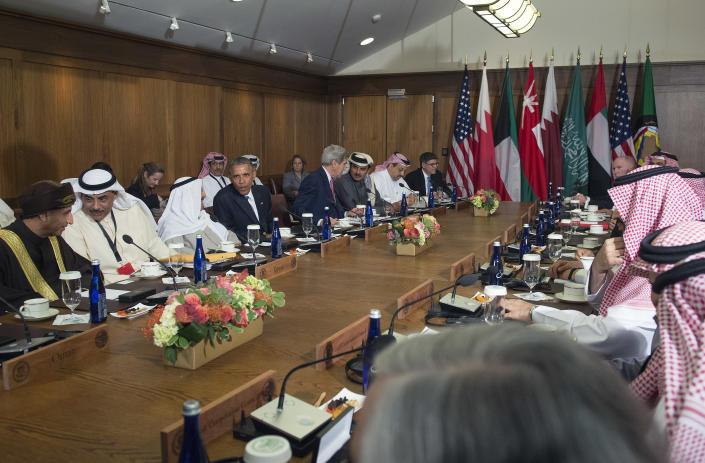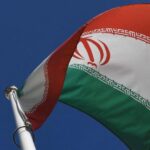WASHINGTON — Negotiations for the United States and Iran to reenter an agreement on the production of nuclear fuel may be fatally stalled, White House press secretary Karine Jean-Pierre said on Monday during a press briefing.
“We don’t see a deal coming together anytime soon,” Jean-Pierre said, even though she qualified that assessment by pointing out that “the door for diplomacy will always remain open.”
While not surprising, the admission made clear that roughly two years of efforts by the Biden administration may ultimately fail to produce results. Known as the Joint Comprehensive Plan of Action, or JCPOA, the accords were signed in 2015 and were, at the time, seen as a major accomplishment of the Obama administration’s conciliatory diplomacy.
Under the agreement — which was also signed by fellow nuclear powers Russia, China, Germany, France and the United Kingdom — Iran agreed to curb efforts to produce a nuclear bomb and to open its nuclear processing facilities to international inspectors.
In return, the United States and the European Union would lift the crippling sanctions that have devastated Iran’s economy, impoverishing and isolating its citizens.
Most conservatives criticized the deal, as did the allies of Israel in the U.S. foreign policy establishment. They cheered when then-President Donald Trump withdrew the United States out of the JCPOA in 2018, decrying it as “one of the worst and most one-sided transactions the United States has ever entered into.”
As with other aspects of American foreign policy, Joe Biden promised to reverse the withdrawal if he were elected president. Just days after taking office, he appointed veteran diplomat Robert Malley to restart JCPOA negotiations. Those negotiations had been slow, especially since Iranian diplomats refused to meet with Malley directly. But there was still optimism, however cautious, that Iran would ultimately recognize that a new deal was in its own best interests.
In recent weeks, however, prospects for a new JCPOA appear to have plummeted. For one, Iran is now supplying weapons for the Russian invasion of Ukraine; on Monday, Iranian-made Shahed-136 “kamikaze” drones were used to launch attacks against Kyiv. It would be difficult for the Biden administration to argue that a regime fueling Russian President Vladimir Putin’s brutal war in Ukraine can be trusted to curb its nuclear ambitions.
The protests that have shaken Iran in recent weeks have also complicated any hopes of a nuclear deal. Galvanized by the killing of Mahsa Amini, a young woman who refused to comply with strict rules regarding head coverings for women, the protests have exploded into a mass movement against Tehran’s repressive policies.
Those policies were well known to the American diplomats who first forged the JCPOA and have tried, since 2021, to revive it. But the stories and images now emanating from Iran have trained worldwide condemnation on Tehran.
“Iran’s support for Russia & crackdown on protests has ended any chance the U.S. will rejoin the JCPOA anytime soon if ever as it would throw an economic lifeline to a repressive and aggressive regime that could well be on the ropes,” Council on Foreign Relations President Richard N. Haass wrote in a Monday morning Twitter message.
Increasingly, that appears to be the conclusion also reached by the Biden administration. Much as Jean-Pierre did on Monday, State Department spokesman Ned Price recently acknowledged that a new Iran deal “is not our focus right now,” as he put it at a briefing last week. Price praised the Iranian demonstrators for “the remarkable bravery and courage that the Iranian people are exhibiting through their peaceful demonstrations.”




